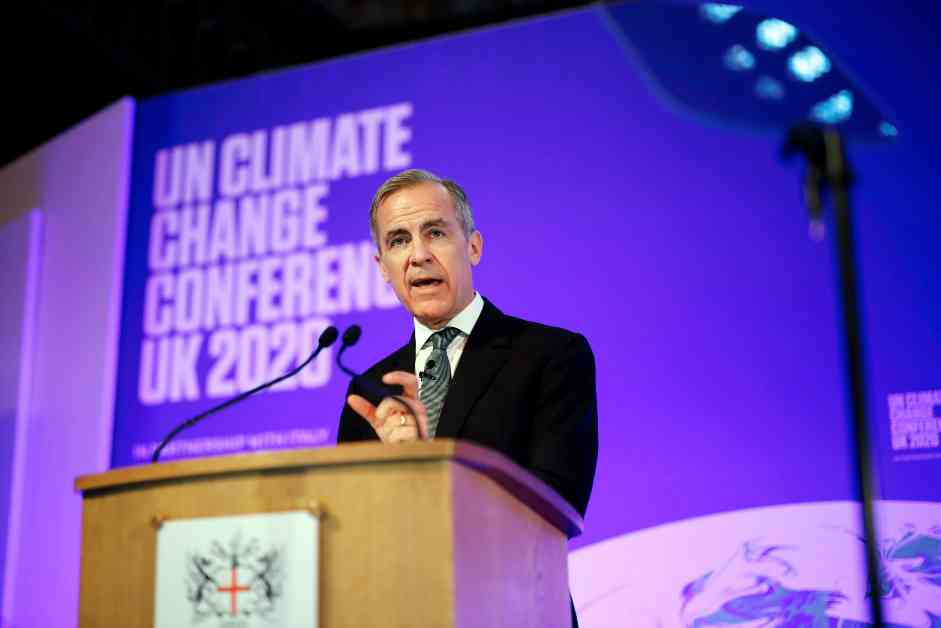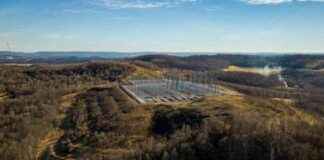So, like, Canadians decided Mark Carney, this dude who used to be a big shot central banker and UN climate envoy, as their prime minister in the latest election on Monday. They were all like, “Nah” to the Conservative Party led by Pierre Poilievre, who was all about saying no to climate action. This whole situation means that Canada, which is like the 12th biggest emitter in the world, will pretty much stick to the same climate policies. The Liberals, under Justin Trudeau and now Carney, have been running the show in this North American nation since 2015. At the moment, it’s still up in the air whether the lefty party scored a majority of seats in Canada’s parliament.
Poilievre and his Conservative crew were all about getting rid of climate policies, like a carbon tax on industry, and pumping up oil and gas production and exports. But Meghan Fandrich, who lived through a gnarly wildfire caused by climate change in her town of Lytton, was like, “Thank goodness Canada said no to that Conservative dude.” She was all worked up because Poilievre voted against climate policies a zillion times, wanted to make fossil fuel production go into overdrive, and would have made emissions go through the roof, leading to even more climate disasters.
A study by Carbon Brief showed that if the Conservatives had won, Canada’s emissions would have gone up. On the flip side, if the Liberals stayed in power, emissions would keep going down, even though not quick enough to meet their own climate goals. The whole climate change thing wasn’t a big deal during the election, especially since Carney axed a hated carbon tax on consumers right after taking over from Trudeau in March.
Polls were all pointing to a huge win for the Conservatives until January, when Trudeau bounced and US President Donald Trump slapped big tariffs on Canadian stuff and talked about annexing the country. That made a lot of folks switch sides and back Carney instead of Poilievre, who was more into Trump’s way of thinking.
Carney, who used to be a banker, has a long history of climate action. When he was running the Bank of England, he encouraged investors to pull their money out of fossil fuel companies. After stepping down, he got into promoting carbon offsets and helping set up a group of financial institutions trying to cut emissions, called the Glasgow Financial Alliance for Net Zero.
Ana Toni, the head honcho of this year’s COP30 UN climate summit, was stoked that Carney, who knows his stuff about climate change and money, was now in charge in Canada. She thinks he’s the right person to lead the country through the energy transition.
After Trudeau announced he was stepping down in January, Carney won the Liberal Party contest to take over in March and then clinched the election, giving him the green light to rule for up to four years. Caroline Brouillette, who leads Climate Action Network Canada, reckons Carney has a chance to show he’s serious about climate action. She says he needs to pick a lane on energy and stop messing around with expanding fossil fuels and new pipelines that would cost us big time.
Under heat from the Conservatives calling him “Carbon Tax Carney,” the prime minister got rid of the controversial tax on consumers this March. Instead, he’s focusing on making homes more energy-efficient and installing heat pumps to fight climate change. But he’s keeping the carbon price on big industries, even though the Conservatives wanted to scrap it.
Carney’s election manifesto also talks about ramping up electric vehicle production, building better infrastructure for electricity, and using carbon removal and storage tech. The Conservative plan, on the other hand, was all about letting loose Canadian resources, by getting rid of limits on oil and gas production, building gas export terminals on the west coast, and greenlighting oil exports from Arctic ports.
Canada is hosting the G7 summit this year and will have a leaders meeting in the oil-rich province of Alberta in June. Harjeet Singh, who runs the Satat Sampada Climate Foundation in India, thinks Carney, as the G7 chair, needs to step up and push for bold climate action globally, starting at home by saying no to new oil and gas projects and urging other G7 countries to up their game in supporting renewable energy and helping developing countries deal with climate change.














